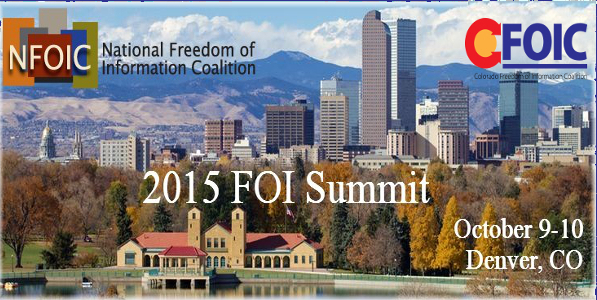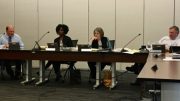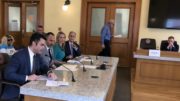Registration is open for the 2015 national FOI Summit, to be held at the Curtis Hotel in Denver on Oct. 9-10.
The “open government” portion of the two-day conference, co-sponsored by the National Freedom of Information Coalition (NFOIC) and the Colorado Freedom of Information Coalition (CFOIC), is on Saturday and will feature panels on issues related to police body-worn cameras, government emails and open data.
Most of Friday’s panels will focus on organizational matters for NFOIC-members such as the CFOIC.
A Saturday-only conference rate of $75 is available for those who register by Sept. 1. The price includes the NFOIC’s “Hall of Fame Luncheon,” which honors “an individual who has left a legacy at the state and local level for their service, accomplishments and contributions  to keep state and local government records and meetings open and accessible to residents.”
to keep state and local government records and meetings open and accessible to residents.”
Saturday’s agenda:
Policing the Police: Should police body-cam videos be publicly available? Do citizens have the right to record police conduct? What redaction policies and procedures should occur? What are the challenges to store and maintain the digital files? Can the public access police internal affairs reports? When do records become public during/after an investigation and why?
State Open Government Hall of Fame Luncheon: Induction of former Miami Herald Managing Editor Pete Weitzel
Keynote Speaker: Karen Kaiser, Associated Press general counsel
Here Today, Gone Tomorrow: What use is a robust public records act if the emails, texts, and other digital records “self-destruct” before the public can even ask to see them? Or where shoddy record keeping puts a financial burden on the petitioner to access and view these records? If the digital files are stored outside of government servers, what rights do citizens have to access those public records? How can you challenge a denied response where the records custodian claims their search turned up nothing to meet your criteria? Why the inconsistencies across jurisdictions for the same type of records requests?
OpenData – No Need to Ask: FOI and OR requests are expensive, time-consuming and often frustrating – sometimes for both sides. Proactive open data policies and procedures can make access to public information cheaper and easier for everyone. A consistently applied definition of a “data set” including what is available right now from public agencies, to what is being (digitally) generated each day by agencies and organizations, determining what data should be public and how it should be made more accessible, will take a dedicated effort from public organizations and members of the public. The need to work together on policies and practices that create and complement best practices to collect, organize, manage and report public information can result in win-win results for both record custodians and record petitioners. Both public organizations and the FOI community must share an understanding of what open data is most useful and how to make it cost- and time-affordable for the public to access it.
The full agenda is here. More details will be added soon.
Register here.
Those needing a hotel room can make reservations at the Curtis until Sept. 8 at the special conference rate of $139/night. Click here for reservations.
Follow the Colorado Freedom of Information Coalition on Twitter @CoFOIC. Like CFOIC’s Facebook page. Do you appreciate the information and resources provided by CFOIC? Please consider making a tax-deductible donation.




